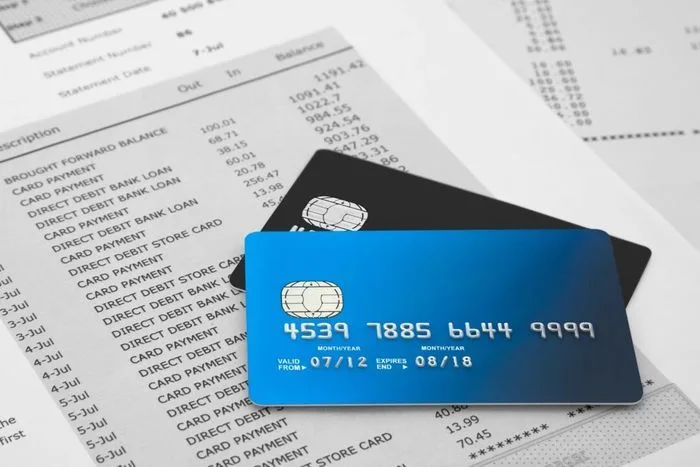By Mary Prenon
A new report from WalletHub finds that 55 percent of Americans believe they’ll be stuck in debt for the rest of their lives. Nearly half—47 percent—say mounting debt is affecting their health, and 44 percent expect their household debt to increase over the next 12 months.
The online survey questioned 200 people of both genders with various ages and incomes across the nation.
According to the latest data from the Federal Reserve Bank of New York, America’s household debt soared to more than $18.3 trillion in the second quarter. Mortgage balances increased by $131 billion, totaling $12.94 trillion at the end of June, and auto-loan balances grew by $13 billion, to $1.66 trillion. Student-loan balances advanced as well, by $7 billion, standing at $1.64 trillion by the end of the second quarter.
WalletHub’s report also discovered that the average U.S. household owed a total of $152,653 at the end of June, with nearly two in five people sharing that debt is a source of conflict within their household. More than two in three believe the economy is not doing as well as they had hoped.
Credit card debt continues to be the biggest hurdle for Americans, with 48 percent responding that they struggled the most keeping up with monthly payments. Yet only 18 percent find mortgage payments challenging, and just 12 percent have difficulty managing auto loans.
WalletHub analyst Chip Lupo told The Epoch Times that mounting credit card debt is not surprising, as more people become reliant on them for everyday expenses.
“Traditionally, a credit card was used for emergencies or big-ticket items like vacations or new furniture,” he said. “Today, people are using them for things like gas, groceries, and even insurance and utility payments.”
Lupo also said rising costs over the past four years and the fact that wages have not kept up with inflation are contributors to America’s debt problems.
“I think there’s also a financial literacy problem when it comes to credit cards,” he said. “They’re easy to get, and too many people don’t do their homework when they’re applying for them. They don’t know the interest rates, which are, on average, about 22 percent now.”
When credit card holders make just the minimum monthly payment, that remaining debt carries not only interest charges, but the costs of any new purchases.
“Some people are even using the cards for fast food, so they may end up paying off those Big Mac years later,” Lupo said.
Ideally, Lupo noted, consumers should make every effort to pay off the entire amount each month to avoid interest charges. If that’s not possible, then he recommends paying off as much as they can.
“It’s not surprising that so many people experience stress-related illness when monthly debt continues to pile up,” he said.
Dealing With Debt Stress
Dr. Hamilton Gaiani, chief medical officer at Firepit Health in New Haven, Connecticut, told The Epoch Times that living with debt can often make people feel trapped, anxious, or even hopeless.
“It can lead to trouble sleeping, panic attacks, low self-esteem, and even depression,” he said. “When people feel like they’ll never be free from debt, they may also stop doing things they enjoy or avoid talking about their situation, which makes the stress even worse.”
A board-certified psychiatrist with the mental health and addiction treatment center, Gaiani recommends people dealing with debt take small steps to protect both their financial and emotional health.
“Focus on what you can control, even if it’s just one payment at a time,” he noted. “Set limits on worrying. Choose a short time each week to review your budget, but don’t let it take over every day.”
Gaiani also suggests talking to someone you trust, as keeping financial worries to yourself can cause stress to grow. “Also, watch for red flags. If you start to feel hopeless, numb, or unable to function, it may be time to speak with a mental health professional.”
Brooks Lape, an addiction specialist and co-founder of Virginia-based Start Your Recovery, agrees. He also suggests mindfulness exercises like meditation or deep breathing to help reduce anxiety.
“Having small and attainable goals around money management, rather than having a specific target of debt amount to be paid off, can reduce one’s feeling of being overwhelmed and make them feel successful,” he told The Epoch Times.
Tips for Reducing Debt
Rod Griffin, a 20-year personal finance expert with Experian, told The Epoch Times that paying off debt is a journey that can often feel like no end in sight.
“Small, consistent steps can make a difference over time,” he said. “And giving yourself grace by acknowledging that you’re doing the best you can with what you have is just as important as the dollars you’re putting away.”
Griffin also negated the myth that carrying a balance on your credit card will help your credit score.
“Outstanding balances can potentially hurt your credit score if you have a high credit-utilization rate,” he said. “Additionally, carrying a balance month to month can cost you in interest charges, so it’s better to pay it in full whenever possible.”
While some consumers may seek help from credit-counseling services, Griffin cautioned that these agencies may charge a small monthly fee for the service, and that some debts—such as mortgage or car loan payments—may not be eligible for their debt management plan.
Typically, these plans feature a negotiation with creditors and creation of a new payment plan that is more affordable for the consumer.
“These plans may reduce monthly costs, allowing you to make payments and lower the risk of defaulting or declaring bankruptcy,” Griffin said.
Dominick Leuzzi, an investment adviser and financial planner at Walsh & Nicholson Financial Group in Wayne, Pennsylvania, told The Epoch Times that many of the families he works with feel stuck.
“I find a lot of my meetings turning into therapy sessions,” he noted. “They’re balancing rising costs, credit cards that never seem to shrink, and the sense that they’re always one emergency away from disaster.”
Turning things around, he said, often begins with just simple shifts and the right mindset.
Leuzzi suggested actions such as creating a “No-Spend Month,” where consumers spend on only the essentials like food, rent, and gas. Another option is the “No Credit Card Challenge,” where people use only cash for transactions. His “One Less” week strategy focuses on cutting just one recurring expense, such as a streaming service, the weekly takeout, or even the morning coffee run.
“These small, behavioral challenges make the process less overwhelming and even a little fun,” he said.
Silver Linings
There are, however, two silver linings in the WalletHub report. First, the ratio of total household debt to deposits suggests that consumers remain in a relatively stable financial position. According to WalletHub, this ratio is still below pre-COVID-19 levels and approximately 23 percent below the historical average.
Second, although the ratio of total household debt to assets rose in the second quarter to 9.57 percent, it remains well below pre-COVID levels and about 22 percent below the historical average.





